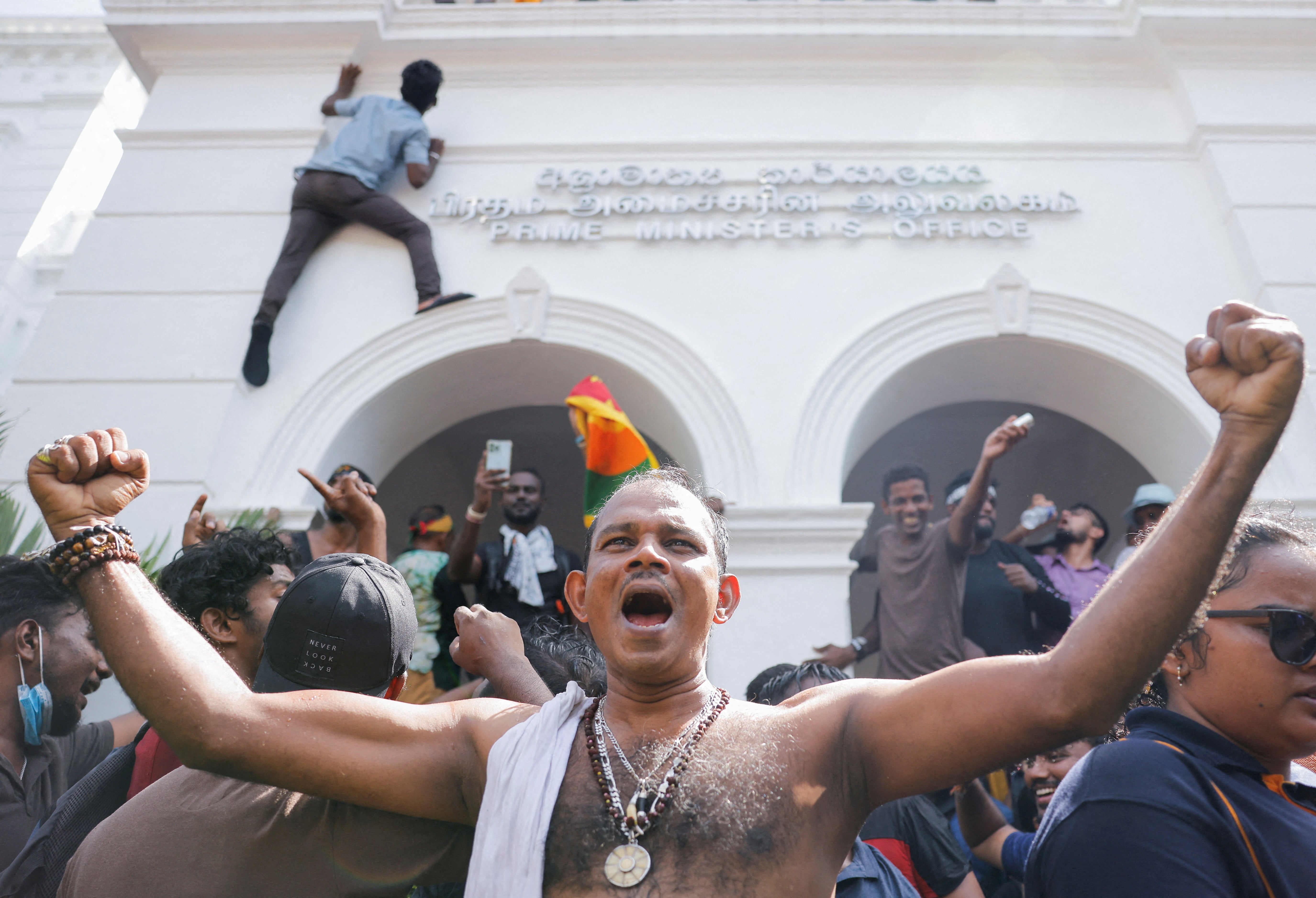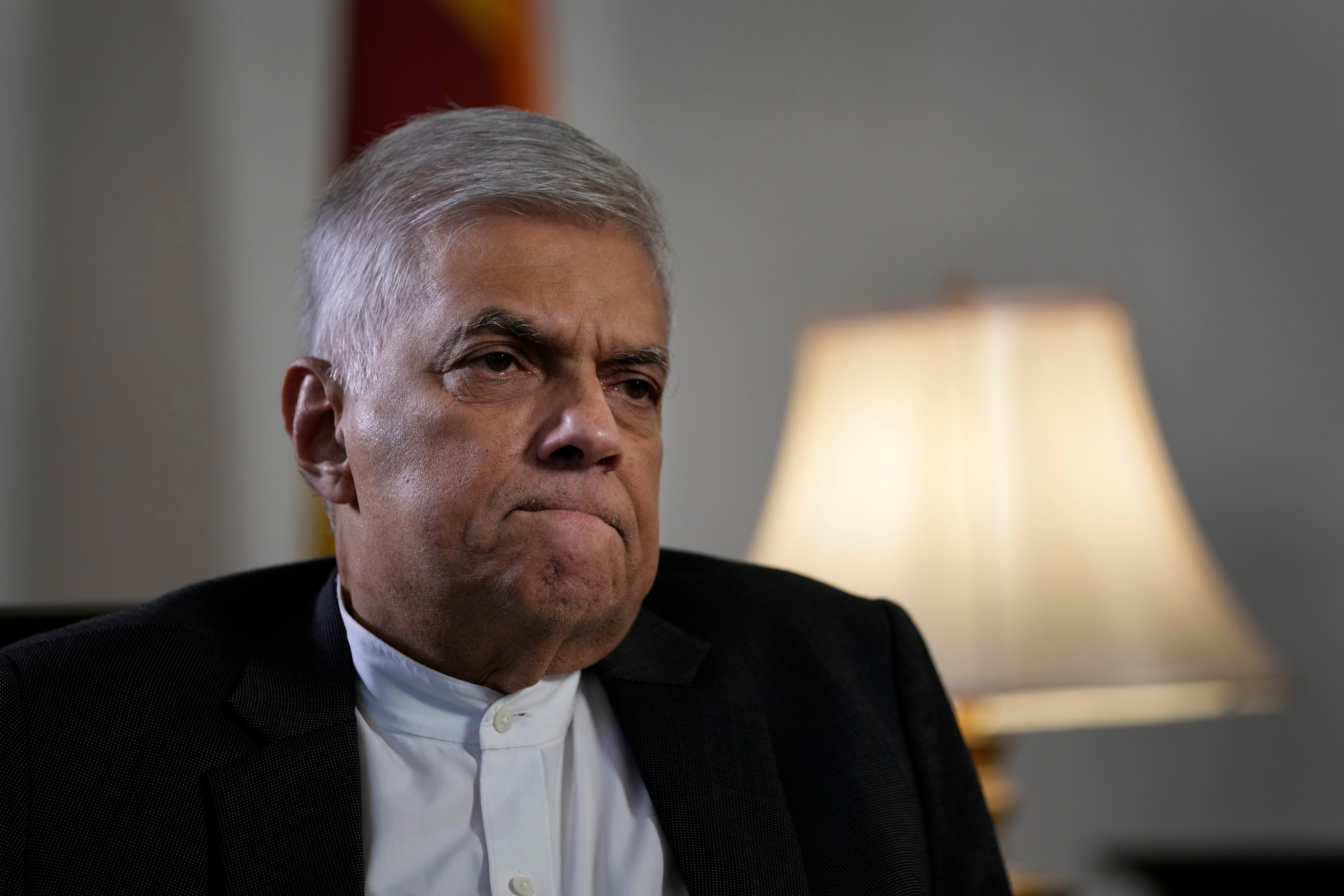Who is Ranil Wickremesinghe, Sri Lanka’s next president?
Wickremesinghe has served six stints as prime minister but never a full term
A week after he was appointed caretaker president, Ranil Wickremesinghe has been elected Sri Lanka’s new president after a parliament vote count on Wednesday, 20 July.
The vote could lead to political turmoil in the south Asian island state reeling from its worst economic crisis in memory.
“I need not tell you the status our country is in. Now that the election is over we have to end this division. We had 48 hours to stay divided but from now on I am ready to have a dialogue with you,” he said, asking other political parties to work with him after his election.
Days after agreeing to step down as prime minister, he was appointed Sri Lanka’s caretaker president on 13 July much to the anger of protesters who seek accountability from the government over a debilitating economic crisis.
Speaker Mahinda Yapa Abeywardhane announced Mr Wickremesinghe would become the acting president in accordance with Article 37.1 of the Sri Lankan Constitution just hours after president Gotabaya Rajapaksa fled the country in the middle of the night with his wife and bodyguards.
Mr Rajapaksa was supposed to resign on 13 July amid historic protests in the country that led to his presidential palace being occupied by protesters demanding accountability.
The same accountability was demanded from Mr Wickremesinghe after thousands of protesters, who want him to resign as well, marched to his office following a standoff with police just hours after he was made acting president.
In his first televised address as acting president, the 73-year-old Mr Wickremesinghe blamed “fascists” for the unrest.
“Those who are in my office want to stop me from discharging my responsibilities as acting president. We can’t let them tear up our constitution. We can’t allow fascists to take over. Some mainstream politicians too seem to be supporting these extremists. That is why I declared a nationwide emergency and a curfew,” he announced.

Mr Wickremesinghe has served six stints as prime minister of the cash-strapped nation – but has never completed a full term.
His sixth tenure began in May when he was appointed by Mr Rajapaksa to help bring international credibility to his government as it negotiated a bailout package with the International Monetary Fund.
Mr Wickremesinghe – who was also made the finance minister in May after one of Mr Rajapaksa’s brothers resigned from the post – soon became the face of the economic collapse of the country.
After his appointment, he said he could solve the crisis which has seen severe shortages of food, fuel and medicines in recent months.
“I thought ‘the situation is bad, it’s your country, so you can’t be wondering whether you are going to succeed or not. You take it over and work to succeed’,” he was quoted as saying to Al Jazeera after his May appointment.
“I have confidence I can turn the economy around.”

In the last two months, Mr Wickremesinghe delivered weekly addresses in parliament and conducted difficult negotiations with financial institutions, lenders and allies to fill government coffers, reported the Associated Press.
He also raised taxes and pledged to overhaul the government that had increasingly concentrated power under the presidency and invited the wrath of the public.
Mr Wickremesinghe has promised to step down after a new government would be formed but protesters said his appointment was only to ease the pressure from Mr Rajapaksa’s escape.
Prior to his latest stint as prime minister, Mr Wickremesinghe was in a power sharing agreement with former president Maithripala Sirisena.
Observers believed an internal rift between the two led to intelligence failures culminating in the 2019 Easter Sunday bombings in which 290 people were killed.
The coalition was also blamed for not prosecuting the Rajapaksas and their allies in alleged murder and corruption cases, according to a report in Indian newspaper The Hindu.
Mr Wickremesinghe’s party – the United National Party (UNP) – claims to be Sri Lanka’s oldest political party.
It has been the governing party or in a governing coalition in the country for several years, including in 1947-56, 1965-70, 1977-94, 2001-04 and 2015-19.
Mr Wickremesinghe is a lawyer by profession and comes from a politically influential family.
He was first elected to parliament in 1977 at the age of just 28.
He has served as the deputy minister of foreign affairs under president JR Jayewardene and was later appointed as the minister of youth affairs and employment.
He has held the portfolios of education and industries, science and technology as well.
He first became the prime minister in 1993 after ex-president Ranasinghe Premadasa was assassinated by the militant group Liberation Tigers of Tamil Eelam (LTTE).
In 1994, he became the leader of the UNP, taking over from Gamini Dissanayake, who was killed by suspected LTTE members while running as a presidential candidate.
He has made two unsuccessful bids to become the country’s president: once in 1999, when he lost to Chandrika Kumaratunga, and later in 2005, when he ceded the election to Mahinda Rajapaksa.
After a stint that lasted a little over a year, Mr Wickremesinghe returned to power in 2001 and then again in 2015.
In 2018, Mr Wickremesinghe was ousted as prime minister by Mr Sirisena who replaced him with Mr Rajapaksa.
He returned to power with the backing of 117 members, reported The Hindu.
In the 2020 election, while Mr Rajapaksa’s Sri Lanka Podujana Peramuna (SLPP) party won a two-thirds majority, the UNP was wiped out.
Mr Wickremesinghe became its lone MP in parliament on account of the country’s proportional representation system.
He was involved in student politics while at the University of Colombo.
Subscribe to Independent Premium to bookmark this article
Want to bookmark your favourite articles and stories to read or reference later? Start your Independent Premium subscription today.


Join our commenting forum
Join thought-provoking conversations, follow other Independent readers and see their replies
Comments